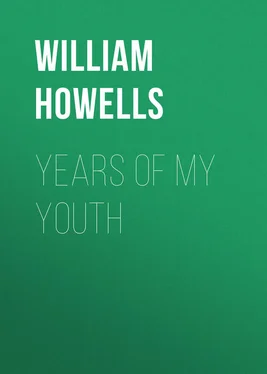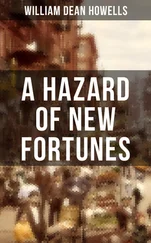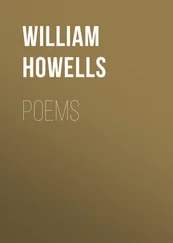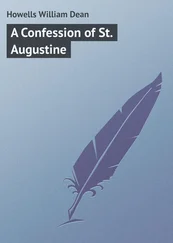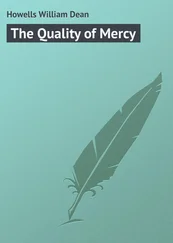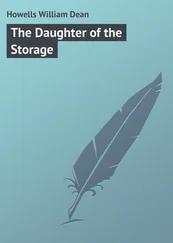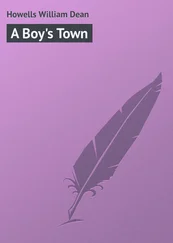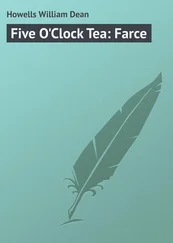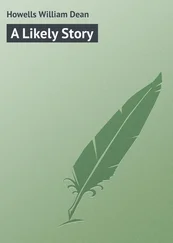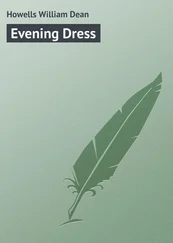William Howells - Years of My Youth
Здесь есть возможность читать онлайн «William Howells - Years of My Youth» — ознакомительный отрывок электронной книги совершенно бесплатно, а после прочтения отрывка купить полную версию. В некоторых случаях можно слушать аудио, скачать через торрент в формате fb2 и присутствует краткое содержание. Жанр: foreign_prose, на английском языке. Описание произведения, (предисловие) а так же отзывы посетителей доступны на портале библиотеки ЛибКат.
- Название:Years of My Youth
- Автор:
- Жанр:
- Год:неизвестен
- ISBN:нет данных
- Рейтинг книги:5 / 5. Голосов: 1
-
Избранное:Добавить в избранное
- Отзывы:
-
Ваша оценка:
- 100
- 1
- 2
- 3
- 4
- 5
Years of My Youth: краткое содержание, описание и аннотация
Предлагаем к чтению аннотацию, описание, краткое содержание или предисловие (зависит от того, что написал сам автор книги «Years of My Youth»). Если вы не нашли необходимую информацию о книге — напишите в комментариях, мы постараемся отыскать её.
Years of My Youth — читать онлайн ознакомительный отрывок
Ниже представлен текст книги, разбитый по страницам. Система сохранения места последней прочитанной страницы, позволяет с удобством читать онлайн бесплатно книгу «Years of My Youth», без необходимости каждый раз заново искать на чём Вы остановились. Поставьте закладку, и сможете в любой момент перейти на страницу, на которой закончили чтение.
Интервал:
Закладка:
Very soon I could set type very well, and at ten years and onward till journalism became my university, the printing-office was mainly my school. Of course, like every sort of work with a boy, the work became irksome to me, and I would gladly have escaped from it to every sort of play, but it never ceased to have the charm it first had. Every part of the trade became familiar to me, and if I had not been so little I could at once have worked not only at case, but at press, as my brother did. I had my favorites among the printers, who knew me as the Old Man, because of the habitual gravity which was apt to be broken in me by bursts of wild hilarity; but I am not sure whether I liked better the conscience of the young journeyman who wished to hold me in the leash of his moral convictions, or the nature of my companion in laughter which seemed to have selected for him the fit name of Sim Haggett. This merrymaker was married, but so very presently in our acquaintance was widowed, that I can scarcely put any space between his mourning for his loss and his rejoicing in the first joke that followed it. There were three or four of the journeymen, with an apprentice, to do the work now reduced by many facilities to the competence of one or two. Some of them slept in a den opening from the printing-office, where I envied them the wild freedom unhampered by the conventions of sweeping, dusting, or bed-making; it was next to camping out.
The range of that young experience of mine transcends telling, but the bizarre mixture was pure delight to the boy I was, already beginning to take the impress of events and characters. Though I loved the art of printing so much, though my pride even more than my love was taken with it, as something beyond other boys, yet I loved my schools too. In their succession there seem to have been a good many of them, with a variety of teachers, whom I tried to make like me because I liked them. I was gifted in spelling, geography, and reading, but arithmetic was not for me. I could declaim long passages from the speeches of Corwin against the Mexican War, and of Chatham against the American War, and poems from our school readers, or from Campbell or Moore or Byron; but at the blackboard I was dumb. I bore fairly well the mockeries of boys, boldly bad, who played upon a certain simplicity of soul in me, and pretended, for instance, when I came out one night saying I was six years old, that I was a shameless boaster and liar. Swimming, hunting, fishing, foraging at every season, with the skating which the waters of the rivers and canals afforded, were my joy; I took my part in the races and the games, in football and in baseball, then in its feline infancy of Three Corner Cat, and though there was a family rule against fighting, I fought like the rest of the boys and took my defeats as heroically as I knew how; they were mostly defeats.
My world was full of boys, but it was also much haunted by ghosts or the fear of them. Death came early into it, the visible image in a negro babe, with the large red copper cents on its eyelids, which older boys brought me to see, then in the funeral of the dearly loved mate whom we school-fellows followed to his grave. I learned many things in my irregular schooling, and at home I was always reading when I was not playing. I will not pretend that I did not love playing best; life was an experiment which had to be tried in every way that presented itself, but outside of these practical requisitions there was a constant demand upon me from literature. As to the playing I will not speak at large here, for I have already said enough of it in A Boy’s Town ; and as to the reading, the curious must go for it to another book of mine called My Literary Passions . Perhaps there was already in my early literary preferences a bent toward the reality which my gift, if I may call it so, has since taken. I did not willingly read poetry, except such pieces as I memorized: little tragedies of the sad fate of orphan children, and the cruelties of large birds to small ones, which brought the lump into my throat, or the moralized song of didactic English writers of the eighteenth century, such as “Pity the sorrows of a poor old man.” That piece I still partly know by heart; but history was what I liked best, and if I finally turned to fiction it seems to have been in the dearth of histories that merited reading after Goldsmith’s Greece and Rome; except Irving’s Conquest of Granada , I found none that I could read; but I had then read Don Quixote and Gulliver’s Travels , and had heard my father reading aloud to my mother the poems of Scott and Moore. Since he seems not to have thought of any histories that would meet my taste, I fancy that I must have been mainly left to my own choice in that sort, though he told me of the other sorts of books which I read.
I should be interested to know now how the notion of authorship first crept into my mind, but I do not in the least know. I made verses, I even wrote plays in rhyme, but until I attempted an historical romance I had no sense of literature as an art. As an art which one might live by, as by a trade or a business, I had not the slightest conception of it. When I began my first and last historical romance, I did not imagine it as something to be read by others; and when the first chapters were shown without my knowing, I was angry and ashamed. If my father thought there was anything uncommon in my small performances, he did nothing to let me guess it unless I must count the instance of declaiming Hallock’s Marco Bozzaris before a Swedenborgian minister who was passing the night at our house. Neither did my mother do anything to make me conscious, if she was herself conscious of anything out of the common in what I was trying. It was her sacred instinct to show no partiality among her children; my father’s notion was of the use that could be combined with the pleasure of life, and perhaps if there had been anything different in my life, it would not have tended more to that union of use and pleasure which was his ideal.
Much in the environment was abhorrent to him, and he fought the local iniquities in his paper, the gambling, the drunkenness that marred the mainly moral and religious complexion of the place. In A Boy’s Town I have studied with a fidelity which I could not emulate here the whole life of it as a boy sees life, and I must leave the reader who cares for such detail to find it there. But I wish again to declare the almost unrivaled fitness of the place to be the home of a boy, with its two branches of the Great Miami River and their freshets in spring, and their witchery at all seasons; with its Hydraulic Channels and Reservoirs, its stretch of the Miami Canal and the Canal Basin so fit for swimming in summer and skating in winter. The mills and factories which harnessed the Hydraulic to their industries were of resistless allure for the boys who frequented them when they could pass the guard of “No Admittance” on their doors, or when they were not foraging among the fields and woods in the endless vacations of the schools. Some boys left school to work in the mills, and when they could show the loss of a finger-joint from the machinery they were prized as heroes. The Fourths of July, the Christmases and Easters and May-Days, which were apparently of greater frequency there and then than they apparently are anywhere now, seemed to alternate with each other through the year, and the Saturdays spread over half the week.
V
The experience of such things was that of the generalized boy, and easy to recall, but the experience of the specialized boy that I was cannot be distinctly recovered and cannot be given in any order of time; the events are like dreams in their achronic simultaneity. I ought to be able to remember when fear first came into my life; but I cannot. I am aware of offering as a belated substitute for far earlier acquaintance with it the awe which I dimly shared with the whole community at a case of hydrophobia occurring there, and which was not lessened by hearing my father tell my mother of the victim’s saying: “I have made my peace with God; you may call in the doctors.” I doubt if she relished the involuntary satire as he did; his humor, which made life easy for him, could not always have been a comfort to her. Safe in the philosophy of Swedenborg, which taught him that even those who ended in hell chose it their portion because they were happiest in it, he viewed with kindly amusement the religious tumults of the frequent revivals about him. The question of salvation was far below that of the annexation of Texas, or the ensuing war against Mexico, in his regard; but these great events have long ago faded into national history from my contemporary consciousness, while a tragical effect from his playfulness remains vivid in my childish memory. I have already used it in fiction, as my wont has been with so many of my experiences, but I will tell again how my mother and he were walking together in the twilight, with me, a very small boy, following, and my father held out to me behind his back a rose which I understood I was to throw at my mother and startle her.
Читать дальшеИнтервал:
Закладка:
Похожие книги на «Years of My Youth»
Представляем Вашему вниманию похожие книги на «Years of My Youth» списком для выбора. Мы отобрали схожую по названию и смыслу литературу в надежде предоставить читателям больше вариантов отыскать новые, интересные, ещё непрочитанные произведения.
Обсуждение, отзывы о книге «Years of My Youth» и просто собственные мнения читателей. Оставьте ваши комментарии, напишите, что Вы думаете о произведении, его смысле или главных героях. Укажите что конкретно понравилось, а что нет, и почему Вы так считаете.
